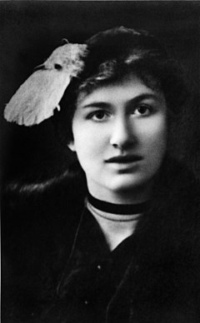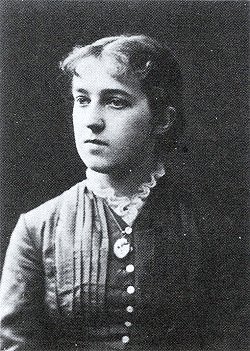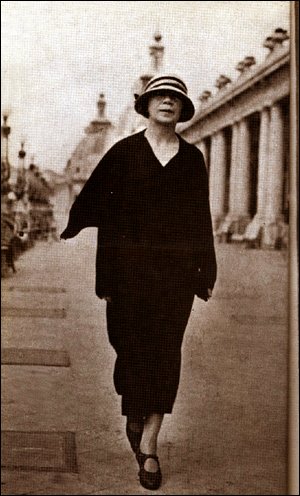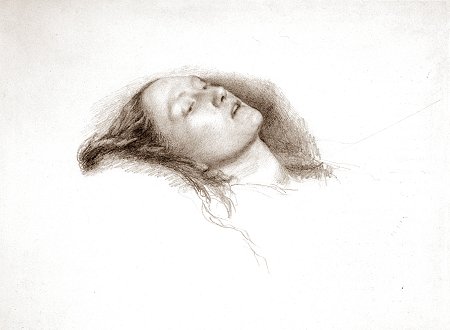Fleurs du Mal Magazine


Or see the index

Edmund Spenser
(1552-1599)
My Love Is Like To Ice
My love is like to ice, and I to fire:
How comes it then that this her cold so great
Is not dissolved through my so hot desire,
But harder grows the more I her entreat?
Or how comes it that my exceeding heat
Is not allayed by her heart-frozen cold,
But that I burn much more in boiling sweat,
And feel my flames augmented manifold?
What more miraculous thing may be told,
That fire, which all things melts, should harden ice,
And ice, which is congeal’s with senseless cold,
Should kindle fire by wonderful device?
Such is the power of love in gentle mind,
That it can alter all the course of kind.
Edmund Spenser poetry
fleursdumal.nl magazine
More in: Archive S-T, Spenser, Edmund

POëZIEWEEK 2014
Poëzie in De Nwe Vorst (Tilburg) – Over de Schoonheid van Geweld op 5 februari 2014 Een ontmoeting met twee dichters, die elkaar ook net ontmoeten. Met God en het volk, met stront en angst, oorlogstrommels en halsbanden. Maar gelukkig ook met BOEM! en ding-a-dong.
Met: Carina van der Walt & Daan Taks # Tijdsduur: 15 a 20 minuten # Optredens om 13:30, 15:00 & 16:30 # Gast om 13:30 activiste Joke Kaviaar
theater de NWE Vorst # WillemII-straat 49 # 5038 BD tilburg
Carina van der Walt en Daan Taks Dichter in De NWE Vorst # Tilburgse dichters organiseren gedurende twee weken bijna dagelijks poëzie-evenementen in de Voorkamer van De NWE Vorst. Aanleiding is de Landelijke Poëziedag op 30 januari. Op woensdag 5 februari zijn Carina van der Walt en Daan Taks tussen 13 en 18 uur te gast in onze voorkamer.
fleursdumal.nl magazine
More in: Archive S-T, Archive W-X, Art & Literature News, Poëzieweek, Walt, Carina van der

Sir Walter Scott
(1771-1832)
“Proud Maisie”
Proud Maisie is in the wood,
Walking so early;
Sweet Robin sits on the bush,
Singing so rarely.
“Tell me, thou bonny bird,
When shall I marry me?”
“When six braw gentlemen
Kirkward shall carry ye.”
“Who makes the bridal bed,
Birdie, say truly?”
“The grey-headed sexton
That delves the grave duly.
“The glow-worm o’er grave and stone
Shall light thee steady.
The owl from the steeple sing,
‘Welcome, proud lady’.”
Sir Walter Scott poetry
fleursdumal.nl magazine
More in: Archive S-T, CLASSIC POETRY, Sir Walter Scott

Jonathan Swift
(1667-1745)
PHYLLIS
ESPONDING Phyllis was endued
With ev’ry talent of a prude:
She trembled when a man drew near;
Salute her, and she turned her ear:
I o’er against her you were placed,
She durst not look above your waist:
She’d rather take you to her bed,
Than let you see her dress her head;
In church you hear her, thro’ the crowd,
Repeat the absolution loud:
In church, secure behind her fan,
She durst behold that monster man:
There practised how to place her head,
And bite her lips to make them red;
Or, on the mat devoutly kneeling,
Would lift her eyes up to the ceiling.
For neighboring beaux to see it bare.
At length a lucky lover came,
And found admittance to the dame.
Suppose all parties now agreed,
The writings drawn, the lawyer feed,
The vicar and the ring bespoke:
Guess, how could such a match be broke?
See then what mortals place their bliss in!
Next morn betimes the bride was missing:
The mother screamed, the father chid;
Where can this idle wench be hid?
No news of Phyl! the bridegroom came,
And thought his bride had skulked for shame;
Because her father used to say,
The girl had such a bashful way!
Now John the butler must be sent
To learn the road that Phyllis went:
The groom was wished to saddle Crop;
For John must neither light nor stop,
But find her, wheresoe’er she fled,
And bring her back alive or dead.
See here again the devil to do!
For truly John was missing too:
The horse and pillion both were gone!
Phyllis, it seems, was fled with John.
Old Madam, who went up to find
What papers Phyl had left behind,
A letter on the toilet sees,
“To my much honoured father–these–“
(‘Tis always done, romances tell us,
When daughters run away with fellows,)
Filled with the choicest common-places,
By others used in the like cases.
“That long ago a fortune-teller
Exactly said what now befell her;
And in a glass had made her see
A serving-man of low degree.
It was her fate, must be forgiven;
For marriages were made in Heaven:
His pardon begged: but, to be plain,
She’d do’t if ’twere to do again:
Thank’d God, ’twas neither shame nor sin;
For John was come of honest kin.
Love never thinks of rich and poor;
She’d beg with John from door to door.
Forgive her, if it be a crime;
She’ll never do’t another time.
She ne’er before in all her life
Once disobey’d him, maid nor wife.”
One argument she summ’d up all in,
“The thing was done and past recalling;
And therefore hoped she should recover
His favour when his passion’s over.
She valued not what others thought her,
And was–his most obedient daughter.”
Fair maidens all, attend the Muse,
Who now the wand’ring pair pursues:
Away they rode in homely sort,
Their journey long, their money short;
The loving couple well bemired;
The horse and both the riders tired:
Their vituals bad, their lodgings worse;
Phyl cried! and John began to curse:
Phyl wished that she had strained a limb,
When first she ventured out with him;
John wish’d that he had broke a leg,
When first for her he quitted Peg.
But what adventures more befell ’em,
The Must hath no time to tell ’em;
How Johnny wheedled, threatened, fawned,
Till Phyllis all her trinkets pawn’d:
How oft she broke her marriage vows,
In kindness to maintain her spouse,
Till swains unwholesome spoiled the trade;
For now the surgeon must be paid,
To whom those perquisites are gone,
In Christian justice due to John.
When food and raiment now grew scarce,
Fate put a period to the farce,
And with exact poetic justice;
For John was landlord, Phyllis hostess;
They keep, at Stains, the Old Blue Boar,
Are cat and dog, and rogue and whore.
“Phyllis” is reprinted from Miscellanies in Prose and Verse. Jonathan Swift. London: Benjamin Motte, 1727.
fleursdumal.nl magazine
More in: Archive S-T, Swift, Jonathan
.jpg)
Kurt Tucholsky
(1890-1935)
Der Graben
Mutter, wozu hast Du Deinen aufgezogen,
Hast Dich zwanzig Jahr’ um ihn gequält?
Wozu ist er Dir in Deinen Arm geflogen,
Und Du hast ihm leise was erzählt?
Bis sie ihn Dir weggenommen haben
Für den Graben, Mutter, für den Graben!
Junge, kannst Du noch an Vater denken?
Vater nahm Dich oft auf seinen Arm,
Und er wollt’ Dir einen Groschen schenken,
Und er spielte mit Dir Räuber und Gendarm
Bis sie ihn Dir weggenommen haben
Für den Graben, Junge, für den Graben!
Werft die Fahnen fort!
Die Militärkapellen spielen auf
Zu Eurem Todestanz!
Seid Ihr hin?
Seid Ihr hin?
Ein Kranz von Immortellen,
Das ist dann der Dank des Vaterlands!
Hört auf Todesröcheln und Gestöhne!
Drüben stehen Väter, Mütter, Söhne,
Schuften schwer, wie ihr, um’s bißchen Leben.
Wollt Ihr denen nicht die Hände geben?
Reicht die Bruderhand als schönste aller Gaben
Über’n Graben, Leute, über’n Graben!
Kurt Tucholsky poetry
fleursdumal.nl magazine
More in: Archive S-T, Tucholsky, Kurt

Percy Bysshe Shelley
(1792 – 1822)
Good-night
Good-night? ah! no; the hour is ill
Which severs those it should unite;
Let us remain together still,
Then it will be good night.
How can I call the lone night good,
Though thy sweet wishes wing its flight?
Be it not said, thought, understood —
Then it will be — good night.
To hearts which near each other move
From evening close to morning light,
The night is good; because, my love,
They never say good-night.
Percy Bysshe Shelley poetry
• fleursdumal.nl magazine
More in: Archive S-T, Percy Byssche Shelley, Shelley, Percy Byssche

Elizabeth (Lizzie) Siddal
(1829-1862)
Lord May I Come?
Life and night are falling from me,
Death and day are opening on me,
Wherever my footsteps come and go,
Life is a stony way of woe.
Lord, have I long to go?
Hallow hearts are ever near me,
Soulless eyes have ceased to cheer me:
Lord may I come to thee?
Life and youth and summer weather
To my heart no joy can gather.
Lord, lift me from life’s stony way!
Loved eyes long closed in death watch for me:
Holy death is waiting for me
Lord, may I come to-day?
My outward life feels sad and still
Like lilies in a frozen rill;
I am gazing upwards to the sun,
Lord, Lord, remembering my lost one.
O Lord, remember me!
How is it in the unknown land?
Do the dead wander hand in hand?
God, give me trust in thee.
Do we clasp dead hands and quiver
With an endless joy for ever?
Do tall white angels gaze and wend
Along the banks where lilies bend?
Lord, we know not how this may be:
Good Lord we put our faith in thee
O God, remember me.
Elizabeth (Lizzie) Siddal poems
fleursdumal.nl magazine
More in: Archive S-T, Lizzy Siddal, Siddal, Lizzy

Edith Södergran
(1892-1923)
Le jour fraîchit…
I
Vers le soir, le jour fraîchit…
Bois la chaleur dans ma main,
Ma main et le printemps ont le même sang.
Prends ma main, prends mon bras blanc,
Prends le désir de mes grêles épaules…
Ce serait merveille de sentir
une seule nuit, une nuit comme celle-ci,
Ta tête lourde sur mon sein.
II
Tu jetas la rose rouge de ton amour
Sur mon sein —
l’étreins de mes mains brûlantes
la rose rouge de ton amour, qui bientôt flétrira…
O maître aux yeux glacés,
J’accepte la couronne que tu me tends,
qui me courbe la tête vers le cœur…
III
Je parle doucement aux arbres prisonniers,
J’ai vu mon seigneur pour la première fois ce jour.
Tremblante, je l’ai tout de suite reconnu.
Voici que je sens déjà sa main lourde sur mon bras léger…
Où est mon rire sonore de jeune fille,
ma liberté de femme portant haut la tête ?
Voici que je sens déjà son étreinte ferme sur mon corps frémissant,
Voici que j’entends l’éclat rude de la réalité
Sur mes frêles, frêles rêves.
IV
Tu cherchais une fleur
Et tu trouvas un fruit.
Tu cherchais une source
Et tu trouvas une mer.
Tu cherchais une femme
Et trouvas une âme —
Tu es déçu.
Edith Södergran poetry
fleursdumal magazine
More in: Archive S-T, Södergran, Edith

Hélène Swarth
(1859-1941)
Liefde
I
En langs een wand van rotsen, rug aan rug,
Volgde ik een pad verlicht door maan noch zon.
Toen stond ik vóór een afgrond en ik kon
Geen handbreed verder en geen stap terug.
En de angst des doods kwam over me, ik begon
Te beven en ik riep: – ‘Wie bouwt me een brug?’
En ‘t ver gebergte gaf mij, hoonend-stug,
Mijn woorden weêr, tot wanhoop mij verwon.
Toen zag ik naast me een marmerbleek gelaat,
Met donkere oogen, vonklende in den nacht,
En ‘k hoorde een stem, gebiedend, schoon zeer zacht:
‘Zoo ge om mijn hals vertrouwend de armen slaat,
Draag ík u over de’ afgrond!’ – Ik dan, als
Een kind, sloeg de armen, zwijgend, om zijn hals.
II
Ik hoorde ‘t ruischen van zijn vleugelslag
En anders niet. Toen vroeg ik: – ‘Wie zijt gij?
‘k Voel me aan uw borst zóó veilig en zóó blij,
Als hadde ik niet geleefd vóór dezen dag.’
Maar zwijgend vloog hij voort naar de andre zij
Van de’ afgrond, en ik weende om wat ik zag:
De weemoedswel, die in zijne oogen lag,
Vloeide over. – ‘Engel, is die traan voor mij?’
En na een wijle sprak hij: – ‘Ja, ik ween
Om wat ge in mijn naam lijden moest weleer,
En wéér moet lijden. Zie, hier blijft ge alleen.’
En in een woud liet hij met mij zich nêer,
Sloot met een kus mijne oogen en… vloog heen.
En ‘k zeeg ter aarde en hoorde en zag niet meer.
Hélène Swarth poetry
fleursdumal.nl magazine
More in: Archive S-T, Swarth, Hélène

Alfonsina Storni
(1892-1938)
Duerme Tranquilo
Dijiste la palabra que enamora
A mis oídos. Ya olvidaste. Bueno.
Duerme tranquilo. Debe estar sereno
Y hermoso el rostro tuyo a toda hora.
Cuando encanta la boca seductora
Debe ser fresca, su decir ameno;
Para tu oficia de amador no es bueno
El rostro tuyo del que mucha llora.
Te reclaman los destinos más gloriosos
Que el de llevar, entre los negros pozos
De las ojeras, la mirada en duela.
¡Cumbre de bellas víctimas el suelo!
Más daño al mundo hizo la espada fatua
De algún bárbaro rey Y tiene estatua.
![]()
Alfonsina Storni poetry
fleursdumal.nl
More in: Archive S-T, Storni, Alfonsina

EDWARD THOMAS
(1878-1917)
O c t o b e r
The green elm with the one great bough of gold
Lets leaves into the grass slip, one by one, —
The short hill grass, the mushrooms small milk-white,
Harebell and scabious and tormentil,
That blackberry and gorse, in dew and sun,
Bow down to; and the wind travels too light
To shake the fallen birch leaves from the fern;
The gossamers wander at their own will.
At heavier steps than birds’ the squirrels scold.
The rich scene has grown fresh again and new
As Spring and to the touch is not more cool
Than it is warm to the gaze; and now I might
As happy be as earth is beautiful,
Were I some other or with earth could turn
In alternation of violet and rose,
Harebell and snowdrop, at their season due,
And gorse that has no time not to be gay.
But if this be not happiness, — who knows?
Some day I shall think this a happy day,
And this mood by the name of melancholy
Shall no more blackened and obscured be.
Edward Thomas: October
fleursdumal.nl magazine
More in: Archive S-T, Thomas, Edward

Elizabeth (Lizzie) Siddal
(1829-1862)
A Year and a Day
Slow days have passed that make a year,
Slow hours that make a day,
Since I could take my first dear love
And kiss him the old way;
Yet the green leaves touch me on the cheek,
Dear Christ, this month of May.
I lie among the tall green grass
That bends above my head
And covers up my wasted face
And folds me in its bed
Tenderly and lovingly
Like grass above the dead.
Dim phantoms of an unknown ill
Float through my tired brain;
The unformed visions of my life
Pass by in ghostly train;
Some pause to touch me on the cheek,
Some scatter tears like rain.
A shadow falls along the grass
And lingers at my feet;
A new face lies between my hands –
Dear Christ, if I could weep
Tears to shut out the summer leaves
When this new face I greet.
Still it is but the memory
Of something I have seen
In the dreamy summer weather
When the green leaves came between:
The shadow of my dear love’s face –
So far and strange it seems.
The river ever running down
Between its grassy bed,
The voices of a thousand birds
That clang above my head,
Shall bring to me a sadder dream
When this sad dream is dead.
A silence falls upon my heart
And hushes all its pain.
I stretch my hands in the long grass
And fall to sleep again,
There to lie empty of all love
Like beaten corn of grain.
Elizabeth (Lizzie) Siddal poems
fleursdumal.nl magazine
More in: Archive S-T, Lizzy Siddal, Siddal, Lizzy
Thank you for reading Fleurs du Mal - magazine for art & literature